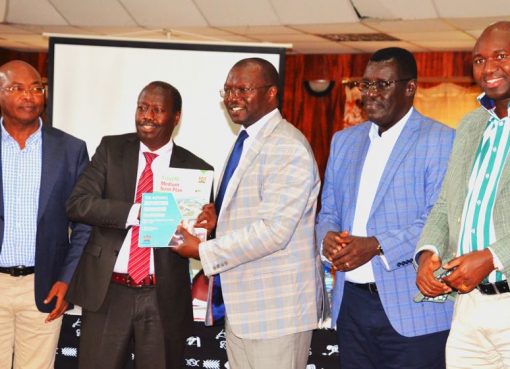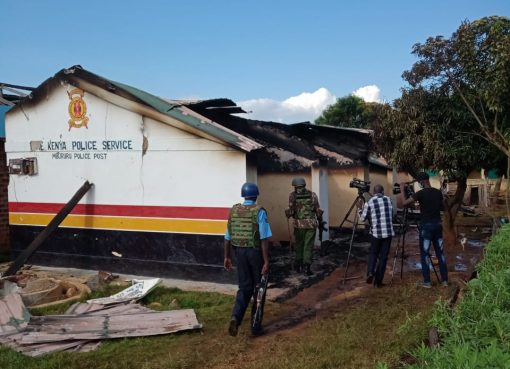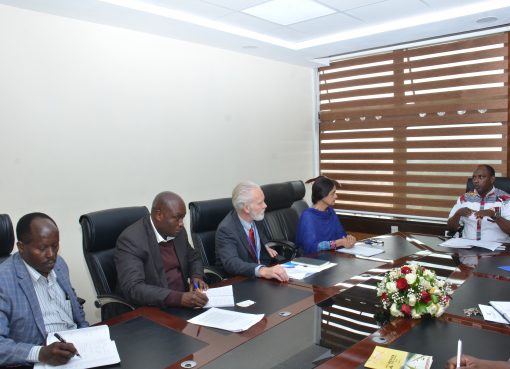The government has earmarked four research centers of excellence that will spearhead the country’s first four-year wildlife research agenda to inform the science informed conservation efforts.
The research centers will be responsible for coordinating and implementing research and monitoring activities in wildlife conservation areas through innovative and responsive scientific research.
The centers will spearhead research programs in seven thematic areas of Wildlife Species Population, Dynamics, Wildlife-Habitat Dynamics Wildlife Health and Population Genetics, Natural Resource Governance and Socio-Economics, Bioprospecting, Climate change, and Wildlife resource information management.
The Field Research Centers which were established based on Kenya’s agro-climatic and ecological zones include, Savanah, Arid and Semi-Arid Ecosystem Research Centre in Tsavo, Voi and Montane-Forest Ecosystem Research Centre in Mweiga, Nyeri.
The other two are the Coastal and Marine Ecosystem Research Centre in Malindi and the Inland Waters and Wetlands Research Centre in Naivasha.
The National Wildlife Research Agenda (2023- 2027 launched by the Tourism and Wildlife Cabinet Secretary Peninah Malonza in Naivasha will provide an overarching science-driven framework towards implementation of National Wildlife Strategies and action plans.
The Savannah, Arid and Semi-Arid Ecosystems centre in Tsavo, Voi will among others spearhead research in elephant demography and group structure and modelling the distribution of Dik-diks in Tsavo Conservation area.
The centre is earmarked to conduct research on population dynamics of endangered wildlife species and study the impact of translocated species on habitats and their management implications.
The centre will also study the carrying capacity of the Tsavo ecosystem as well as the distribution, threats and population dynamics of carnivores especially on the elephants.
Under the plan, the centre will research on the spatial and temporal distribution of birds of prey and the threats that are limiting their population growth within the savannah arid and semi-arid ecosystem.
On its part, the Montane – Forest field centre in Mweiga, Nyeri will spearhead research in species population dynamics of the endangered and elusive mountain bongo and black rhino in Aberdares National Park.
It will also undertake dung count studies to establish the population densities of elephants in Mt Elgon forest and the mapping of wildlife corridors connectivity and ecological processes.
The centre will study wildlife disease surveillance, mapping and risk assessment of disease outbreaks and pathogens spillover patterns on wildlife.
With the growing expansion of capital projects, the centre will assess the impacts of infrastructure developments and extractive industries on wildlife habitats and species as well as implications of climate change on wildlife.
In addition, the centre will undertake studies on endangered antelopes (Sable antelopes, Hirola, Mountain Bongo) and national survey of species targeted for bush meat harvesting.
On the other hand, the Marine and Coastal centre in Malindi will spearhead the assessment of Coral reefs, seagrass beds and mangroves vulnerabilities and their adaptation to climate change and the mitigation measures.
The centre will also assess and establish fish biomass in protected areas, evaluate effective shoreline change mitigation measures, develop innovative ways to manage shorelines and an analysis of marine megafauna and sea turtles nesting patterns.
Additionally, the government tasks the centre to monitor the distribution, population of Sable Antelope and elephant in Shimba Hills National Reserve and Arabuko – Sokoke forest reserve as well as small mammals such as pangolins.
The Inland Freshwater and Wetlands Research Centre in Naivasha will undertake studies of breeding and culture of threatened and endangered freshwater fish species to inform restocking programs.
The centre will study the population dynamics and distribution of hippopotamus and crocodiles in critical freshwater bodies towards providing innovative mechanisms for controlling human-wildlife conflicts.
The Naivasha research centre will undertake the impacts of rising levels of freshwater lakes on biodiversity and implications on food security and population dynamics of freshwater fish species of conservation concern.
Speaking during the launch of the agenda in Naivasha, the Kenya Wildlife Training and Research Institute Director, Dr. Patrick Omondi lauded the launch of the research agendas which will inform science-based conservation efforts.
Dr. Omondi said the institute mid-term review and periodical evaluations provide insights on implementation, gaps identified and the progress made in achieving the national wildlife research and development agenda.
So far, Dr. Omondi said, the Institute has conducted 16 research projects and its scientists published 35 peer reviewed articles with key research findings and recommendations forwarded to Kenya Wildlife Service for action.
Dr. Omondi said the institute is reviewing its curriculum to conform to the research agendas and is establishing an integrated information database system.
By Erastus Gichohi





